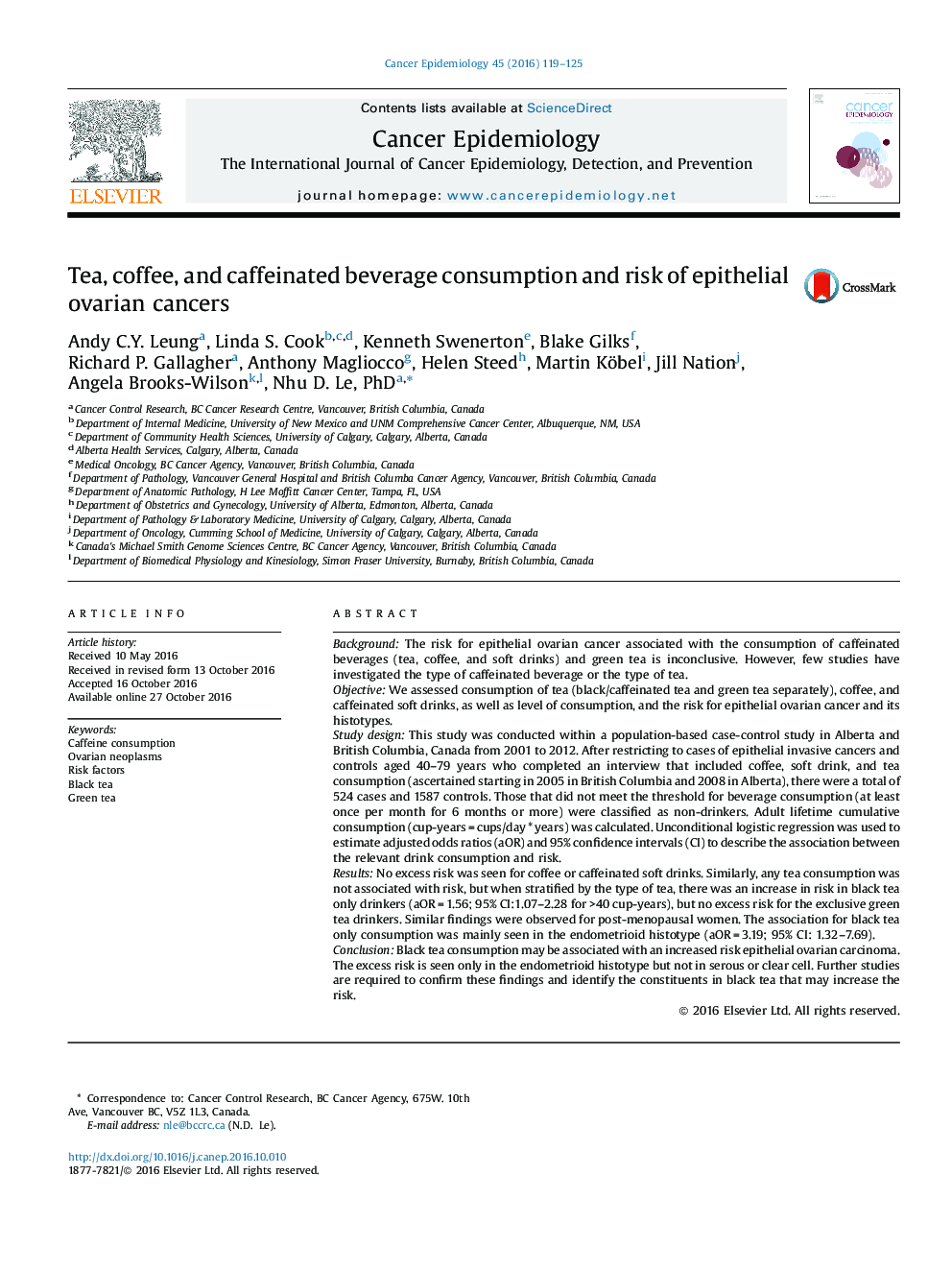| کد مقاله | کد نشریه | سال انتشار | مقاله انگلیسی | نسخه تمام متن |
|---|---|---|---|---|
| 5524833 | 1546530 | 2016 | 7 صفحه PDF | دانلود رایگان |
- Black tea consumption may increase epithelial ovarian cancer risk.
- The excess risk is most relevant for the endometrioid histotype.
- Study strength: adult lifetime tea, coffee, and caffeinated beverage consumption.
- Study Strength: evaluation of types of tea-caffeinated/black tea and green tea.
BackgroundThe risk for epithelial ovarian cancer associated with the consumption of caffeinated beverages (tea, coffee, and soft drinks) and green tea is inconclusive. However, few studies have investigated the type of caffeinated beverage or the type of tea.ObjectiveWe assessed consumption of tea (black/caffeinated tea and green tea separately), coffee, and caffeinated soft drinks, as well as level of consumption, and the risk for epithelial ovarian cancer and its histotypes.Study designThis study was conducted within a population-based case-control study in Alberta and British Columbia, Canada from 2001 to 2012. After restricting to cases of epithelial invasive cancers and controls aged 40-79 years who completed an interview that included coffee, soft drink, and tea consumption (ascertained starting in 2005 in British Columbia and 2008 in Alberta), there were a total of 524 cases and 1587 controls. Those that did not meet the threshold for beverage consumption (at least once per month for 6 months or more) were classified as non-drinkers. Adult lifetime cumulative consumption (cup-years = cups/day * years) was calculated. Unconditional logistic regression was used to estimate adjusted odds ratios (aOR) and 95% confidence intervals (CI) to describe the association between the relevant drink consumption and risk.ResultsNo excess risk was seen for coffee or caffeinated soft drinks. Similarly, any tea consumption was not associated with risk, but when stratified by the type of tea, there was an increase in risk in black tea only drinkers (aOR = 1.56; 95% CI:1.07-2.28 for >40 cup-years), but no excess risk for the exclusive green tea drinkers. Similar findings were observed for post-menopausal women. The association for black tea only consumption was mainly seen in the endometrioid histotype (aOR = 3.19; 95% CI: 1.32-7.69).ConclusionBlack tea consumption may be associated with an increased risk epithelial ovarian carcinoma. The excess risk is seen only in the endometrioid histotype but not in serous or clear cell. Further studies are required to confirm these findings and identify the constituents in black tea that may increase the risk.
Journal: Cancer Epidemiology - Volume 45, December 2016, Pages 119-125
